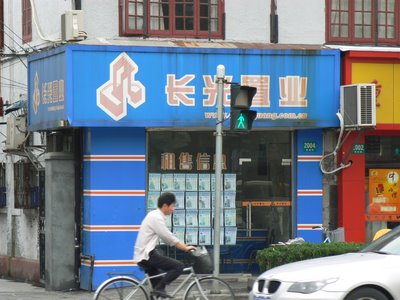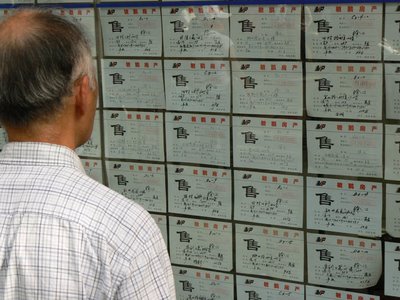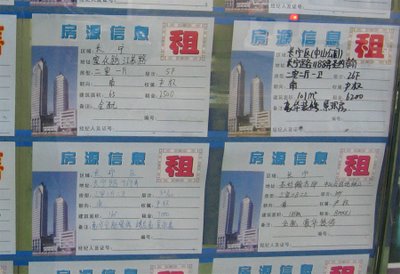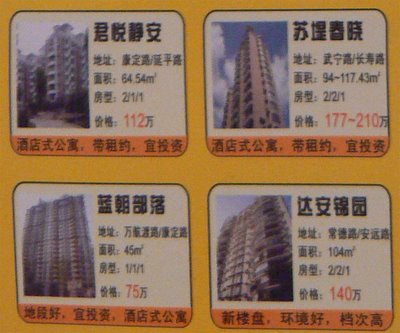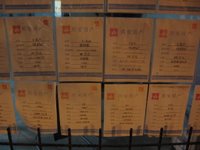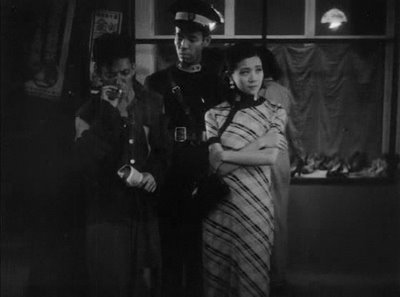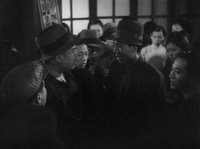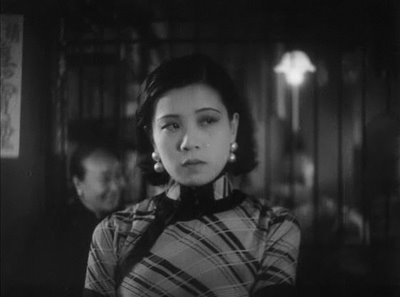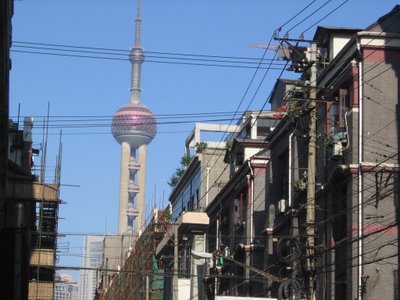
 The Bund, and Nanjing Lu, are Shanghai's most-visited areas, with ritzy restaurants, nice hotels, and chic clothing stores. The Bund has sweeping views of old Shanghai on one side, and Pudong's very new, very tall, very weird buildings on the other - including what's going to be the world's tallest.
The Bund, and Nanjing Lu, are Shanghai's most-visited areas, with ritzy restaurants, nice hotels, and chic clothing stores. The Bund has sweeping views of old Shanghai on one side, and Pudong's very new, very tall, very weird buildings on the other - including what's going to be the world's tallest.On the other hand, North of the Bund is defined by the machine shops along Beijing Lu:
It has a lot of older brick buildings, generally four or five stories tall, with shops on the first floor. I've never been inside, but from the outside they look charming:
The area also has an unpretentious feel, something like the distant area of Shanghai I used to live in, but a lot more crowded and fun, without all the Soviet-style buildings. It has a lot of street food and hole-in-the-wall restaurants, I think the restaurants and snacks in this area are pretty much decent, plentiful, and cheap. Here are some Shengjian, frying in a pan.
While there's a subway on Nanjing Lu, it gets to be a bit of a walk for a lot of the area, and the streets are so small that the bus isn't very fast. Bicycles are the way to go, the area is extremely crowded with them:
The area contains the most scenic part of the Suzhou River, not just the large downtown buildings in the background, but older ornate buildings such as the central post office and the Russian Embassy, built to take advantage of the view:
I'm no expert on the area's history, but I believe the brick buildings just north of the Bund are of a generally higher quality due to their proximity to Nanjing Dong Lu, and also because some of the cheaper brick buildings were knocked down to put in modern buildings. The area has a more permanent feel - unlike a lot of Shanghai there's not so many new buildings coming up, and it doesn't feel like many new buildings will. But as you get more North, the area feels more in flux. There's a lot of decrepit buildings standing right next to top-quality apartment complexes, in Shanghai you have to believe that situation won't last very long.
 Especially right near the Suzhou River, you can see a lot of buildings getting knocked down, and huge apartment complexes coming in to replace them. In all honesty I would love to live in an apartment in the area, and one of these new apartment building complexes would probably be the only way - snagging an apartment in one of those old brick buildings is impossible. There's the obvious paradox that the character of the neighborhood is being sacrificed to make way for these high-rises.
Especially right near the Suzhou River, you can see a lot of buildings getting knocked down, and huge apartment complexes coming in to replace them. In all honesty I would love to live in an apartment in the area, and one of these new apartment building complexes would probably be the only way - snagging an apartment in one of those old brick buildings is impossible. There's the obvious paradox that the character of the neighborhood is being sacrificed to make way for these high-rises.
I went to an apartment in a high-rise located just a little to the east, and took some pictures looking down, stretching on across central Shanghai and Southern Hongkou. It's funny, the area looks almost orderly when viewed from above.
I wish I had brought a better camera for these pictures - anyway, zooming down on the houses, you can see drying laundry and a miniature potted garden. It's about on course for any lanai in Shanghai.
